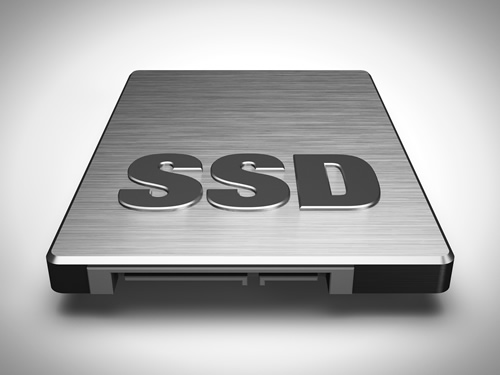Faster response, greater reliability, increased energy savings, decreased price…all of these are no doubt important ideals to strive for in the world of Internet technology, no matter the specific niche. And when it comes to the issue of web hosting—much of which is now moving into the realm of Solid State Disk (SSD) hardware—realizing these benefits is now easier than ever before.

To begin, it’s important to understand the difference between SSD and traditional hard drives in how they each store and read information. The latter, known as an Hard Disk Drives or HDD, store information on a magnetic-coated rotating disk and utilize an actuator arm that reads the information on said disk. The storage medium is “nonvolatile,” meaning it doesn’t go away when you turn your computer off. The main deterrent to efficiency with an HDD, unfortunately, is the amount of physical movement involved in the process, movement that takes both time and energy.
An SSD does much the same job as an HDD, but rather than using a magnetic coating on top of a “platter” data is contained on linked flash memory chips that, like the standard disk, retain the data whether or not there’s power to the system (the aforementioned “nonvolatile.”) The SSD chips can be installed permanently on a computer’s motherboard, on an external card or in a box that’s wired to a slot in your desktop or laptop computer.
So why are SSDs considered by many to be the better choice for data storage and retrieval, especially for those who run a hosted blog or e-commerce website?
The first and most obvious answer is speed. Testing has demonstrated that SSDs can read and transfer nearly three times the amount of data in megabits per second than a traditional HDD—figure 15-20 milliseconds versus 0.2 milliseconds. While this may seem arbitrary to many people (20 milliseconds is still pretty fast after all), consider this: today’s data-driven sites generate pages from hundreds of database queries and access content simultaneously, and as such a 20 millisecond difference in information return actually makes quite a big difference. The browsing experience for a user is significantly more pleasurable, especially for e-commerce sites where loading speed is of paramount importance. Indeed, research shows that a delay of only four seconds in the loading of a virtual “shopping cart” alone translates into roughly a 20 percent loss in customers and sales.
In addition to the asset of increased speed, SSDs are shown to be much more reliable. When an HDD dies, it often does so very quickly, resulting in a complete loss of data (a good reason to back up your system on a regular basis). At the end of their operational life SSDs, on the other hand, simply stop allowing data to be “written” on them while still allowing the existing data stored there to be accessed and read. Additionally, the lack of moving parts on an SSD makes them less vulnerable to jarring shocks or damage from vibrations, and they can operate efficiently within a greater temperature range. All of this translates into a lesser chance of losing all your data in a catastrophic system crash.
On the issue of environmental impact, the “green” among us will appreciate the fact that SSDs consume considerably less energy than spinning drives and inherently run cooler: statistics put SSD power consumption at 80 percent less than traditional drives.
Thankfully, the price difference between HDDs and SSDs has narrowed to the point where many website operators are willing to pay the miniscule increase in cost for whopping gains in performance and reliability. And as such tech insiders are strongly urging consumers to build new websites using SSDs from the start as well as upgrade existing sites to SSD hosting.
Lastly, even if you’re just a small-time blogger or mom-and-pop business running your concern from a simple laptop, there’s no reason to discount the importance of utilizing SSD hosting. The simple peace of mind that comes with the technology means you can spend more time concentrating on what’s truly important, such as website optimization and design that translates into real hits and stronger online sales.


